Apertures and Anecdotes
photos from around the world and the stories behind them
dancing to freedom
“My greatest hope with teaching dance is to offer people that glimpse of inner freedom we’re all born with–the spark of divinity within us,” says Tara Murphy, an African dance performer and teacher whom I recently photographed dancing on a Cape Cod beach.
“I put on that music and danced all around the house. I was so consumed with the rhythm, I just couldn’t stop dancing. Here I was in Minnesota surrounded by snow, dancing like crazy to African rhythms. I didn’t even know what I was doing,” Tara Murphy says of her first exposure to the music of Babatunde Olatunji, a Nigerian Yoruba who came to America in the 1950s and popularized African drumming.
The first time I ever saw Tara Murphy dance, I knew I wanted to photograph her. She was like a bird recently uncaged, flying through the air with an appreciation of its own freedom and joyousness. It was stunning to watch. I finally had the opportunity to photograph Tara dancing at a beach on a beautiful summer evening a few weeks ago. The experience of photographing her was as inspiring as that first time I watched her dance. At times, I thought she might fly off into great blue Cape Cod sky. Afterwards we sat down to talk about her dancing and the story behind it.
One of Tara’s most striking comments during our conversation was this: “My greatest hope with dance is to offer people that glimpse of inner freedom we’re all born with–the spark of divinity within us.” Tara was born in Washington D.C. to an African-American mother and Irish-American father in 1969. Her parents had married when interracial marriage was still illegal in most states in the U.S. Later, after her parents divorced and her mother remarried, the family moved to Northfield, Minnesota where Tara’s family was one of two black families. While the community was quite open, she grew up hearing painful stories from her grandmother about growing up in the segregated south. “I inherited the burden of those memories and still think there’s so much healing that needs to happen,” she says.
Tara became immersed in ballet during childhood but by the time she was 16, she felt she was losing her connection to dance because of the undue focus on outward appearance in ballet. Because of the pressure to be thin, she developed an eating disorder. Just about this time, she happened upon a vintage record of Babatunde Olatunji, a Nigerian Yoruba who came to America and popularized African drumming in the 1950s. “I put on that music and danced all around the house. I was so consumed with the rhythm, I just couldn’t stop dancing. Here I was in Minnesota surrounded by snow, dancing like crazy to African rhythms. I didn’t even know what I was doing. I think at the time I made an unconscious deep spiritual connection with this music,” she explains.
A few years later, Tara would have her first real exposure to African dance while in college doing a study abroad program in Accra, Ghana. She took dance classes, hung out with the National Dance Company of Ghana and was immersed in the culture of Ghana. Even though she had a ballet background, she transitioned to African dance quite naturally. “I really lacked exposure to African culture growing up so my choosing African dance was very much about reclaiming my roots and embracing that heritage,” she says.
African Dance continued to play a major role in her life but it was only when she moved to Cape Cod in 2001 with her husband that she first began teaching it. “No one else was doing it in the area and I found myself in demand. A few years later she developed a group of local dedicated dancers that she performs with. Her classes and performances are accompanied by several professional drummers and a master African drummer, Issa Coulibaly, from Mali, who leads the performances.
In addition to getting people excited about African dance and drumming, Tara hopes to educate people about the context out of which the dances emerged. “I want people to understand the sophistication and complexity of the rhythms, the purpose of the dance forms which are often used to usher in life events like birth, death, marriage, initiation into adulthood etc. and how dancing and drumming create a healing connectedness and community which we’ve lost to some degree in our culture.”
Tara’s classes (capecodafricandanceanddrum.com) have inspired a passionate following. “Dance is the one thing that takes me to that place of peace and stillness and that’s what I care more about than getting a movement ‘right’,” she explains. “I want people to know that ultimate freedom, natural access to a heightened experience of being alive without drugs”.
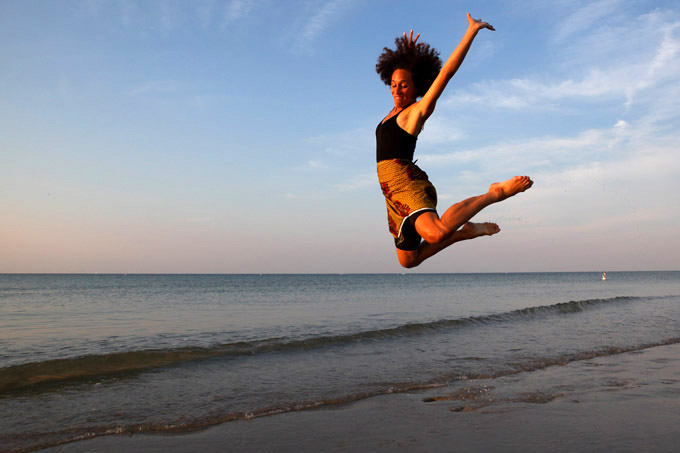
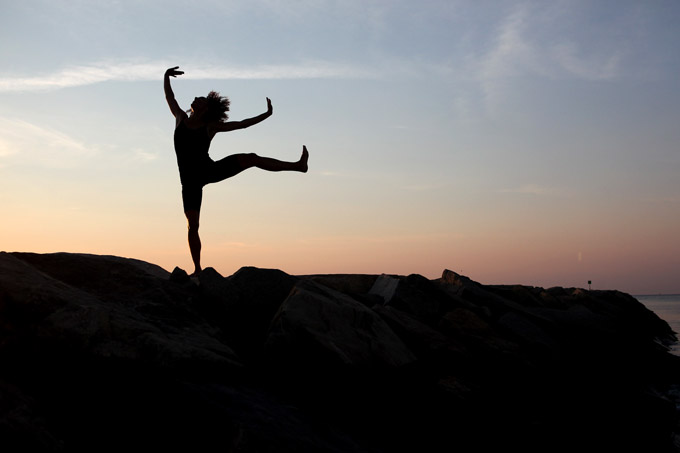
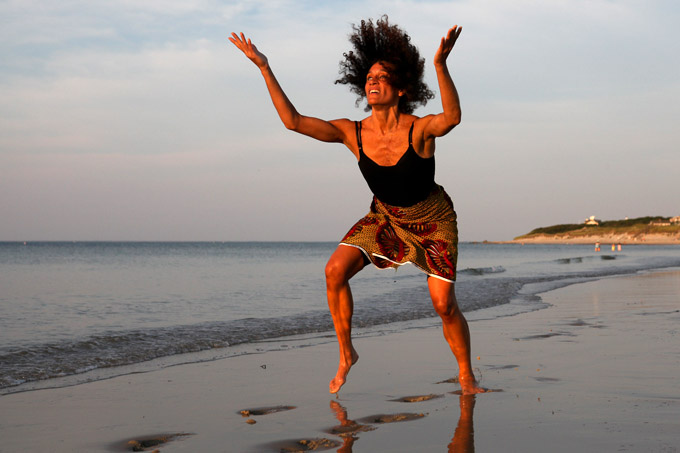
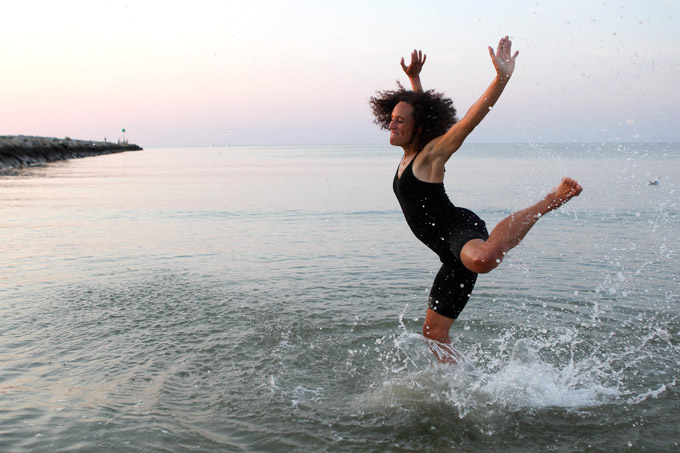
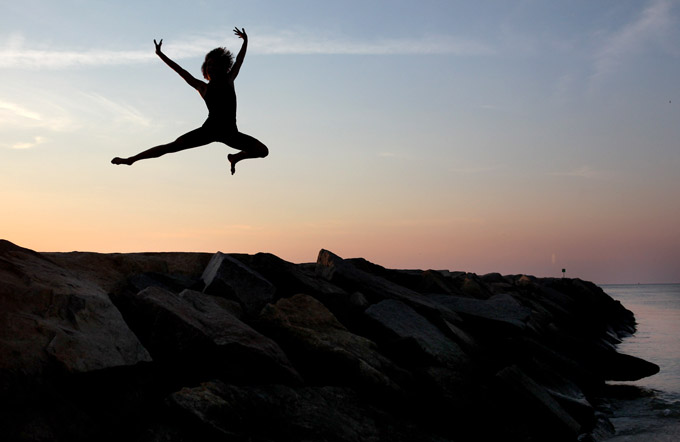
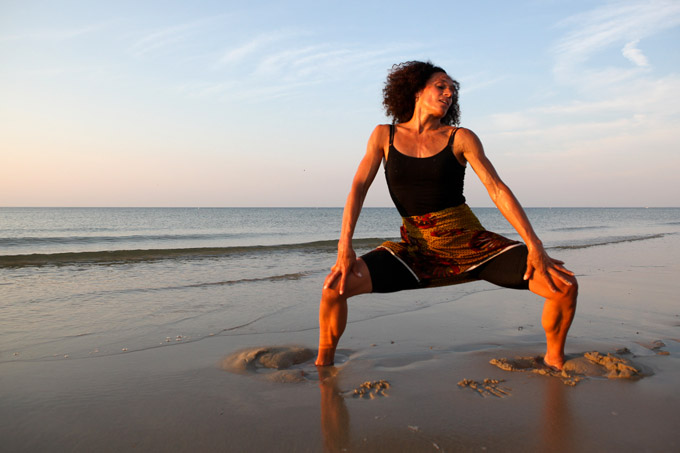

Incredible photos that capture the flight, jubilance and sheer joy that IS Tara Murphy.
There’s no “capturing” Tara – She IS spirit, heart, soul and an invitation to join her on the way to “FREEDOM”!
So – If you dare – be inspired to let go of your worries, or concerns for a few minutes. Take a deep breath and FLY!
LikeLike